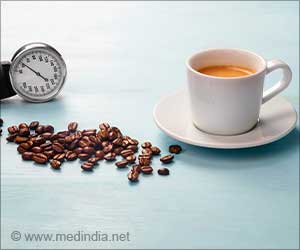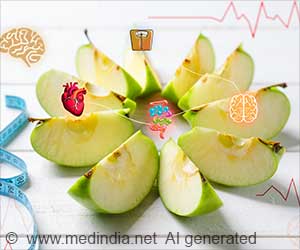There is contradictory evidence when it comes to coffee and its effect on the kidneys. Recent research suggests that 3 or more cups may be harmful.
- A recent study suggests that people who metabolize caffeine slowly are three times more likely to develop kidney dysfunction
- This contradicts other research, which has suggested that coffee promotes health, including kidney health
- The slow metabolism is because of a gene variant present in half the population at large
Endogenous Opioids and Renal Toxicity
Go to source) (2✔ ✔Trusted Source
Association of coffee consumption and chronic kidney disease: A meta-analysis
Go to source). A recent study conducted at the University of Toronto may bring some resolution, and yes, too much coffee can definitely harm your kidneys (3✔ ✔Trusted Source
CYP1A2 Genetic Variation, Coffee Intake, and Kidney Dysfunction
Go to source).
The study suggests that there is a particular gene variant that may be the culprit behind coffee being three times more likely to cause kidney dysfunction.
Rate of Metabolism of Coffee Determines the Health of Kidneys
According to researchers, it all depends on the speed at which a person metabolizes caffeine. In the study, about half of the participants had the rs762551 variant of the CYP1A2 gene, a variant that caused them to metabolize caffeine more slowly. This group was determined to be at a higher risk of kidney damage.Researchers say that this is about the same percentage of slow caffeine metabolizers in the general population.
The study assessed kidney health by tracking three accepted markers of kidney dysfunction: albuminuria, hyperfiltration, and hypertension. The study is published in JAMA Network Open.
The observational study went on for about 16 years. It involved a population of 1,180 participants, ages 18 to 45, with each regularly being assessed over a 7.5-year follow-up period. All participants had untreated stage 1 hypertension and had been recruited as part of the separate study.
After identifying those with the problematic CYP1A2 variant, Dr. Sara Mahdavi, the lead author of the study and a researcher with the Department of Community and Family Medicine at the University of Toronto, said, “It was remarkable to see just how striking the effects of coffee were in the group that had this genetic variant, yet no effect whatsoever in those who did not.”
People who metabolized caffeine slower and who drank three or more cups of coffee each day were 2.7 times more likely to develop kidney dysfunction. They were also 2.8 times more likely to develop hypertension.
How Much Caffeine is Too Much Caffeine?
“Caffeine is the most widely studied substance in coffee and can be found in other beverages like tea, cola, and energy drinks. Coffee contains many substances that can have various effects on the body, both beneficial as well as harmful,” noted Dr. Mahdavi.The study suggests that it is only harmful to people whose ability to quickly detoxify caffeine out of their system is impaired.
“This implicates caffeine, specifically, as the component in coffee that can damage the kidneys. It also suggests that caffeine from any source can be harmful in those individuals who have this genetic variant that impairs their ability to eliminate caffeine from their system,” she explained.
The researchers hope the study’s findings will prompt a re-examination of the current guidelines, which approve up to 400 milligrams, or four or five cups, of brewed coffee per day (4✔ ✔Trusted Source
Spilling the Beans: How Much Caffeine is Too Much?
Go to source).
There are general guidelines as to the relative amounts of caffeine one can expect to find in different caffeinated beverages such as coffee, espresso, and tea.
Although, there are an astonishing number of factors that determine a specific cup’s caffeine content, these include the species of bean, brewing time, the temperature of the water, pressure, the extent of roasting and grinding, the type of water, and the coffee/water balance.
The Culprit: The CYP1A2 Gene
The CYP1A2 enzyme is responsible for metabolizing certain compounds such as caffeine, some medications, and several dietary substances.“Although the enzyme detoxifies caffeine, it can actually activate some pro-carcinogens that are found on the surface of barbecued meat,” Dr. Ahmed El-Sohemy, the study’s senior investigator at the University of Toronto, noted.
In addition to the rs762551 variant, he said, “there were a number of factors that can either increase or decrease the activity of CYP1A2, regardless of whether a person is a fast or slow metabolizer.”
Dr. El-Sohemy said that hormonal contraceptives may decrease the activity of CYP1A2, and effectively turn fast metabolizers into slow metabolizers.
Cruciferous vegetables, he added, can speed up CYP1A2 activity. The rs762551 CYP1A2 variant has also been implicated in the development of cancer. There are genetic companies that can test a person for the presence of this variant.
References:
- Endogenous Opioids and Renal Toxicity - (https://synapse.koreamed.org/articles/1025888)
- Association of coffee consumption and chronic kidney disease: A meta-analysis - (https://onlinelibrary.wiley.com/doi/10.1111/ijcp.12919)
- CYP1A2 Genetic Variation, Coffee Intake, and Kidney Dysfunction - (https://www.ncbi.nlm.nih.gov/pmc/articles/PMC9880799/)
- Spilling the Beans: How Much Caffeine is Too Much? - (https://www.fda.gov/consumers/consumer-updates/spilling-beans-how-much-caffeine-too-much)
Source-Medindia















